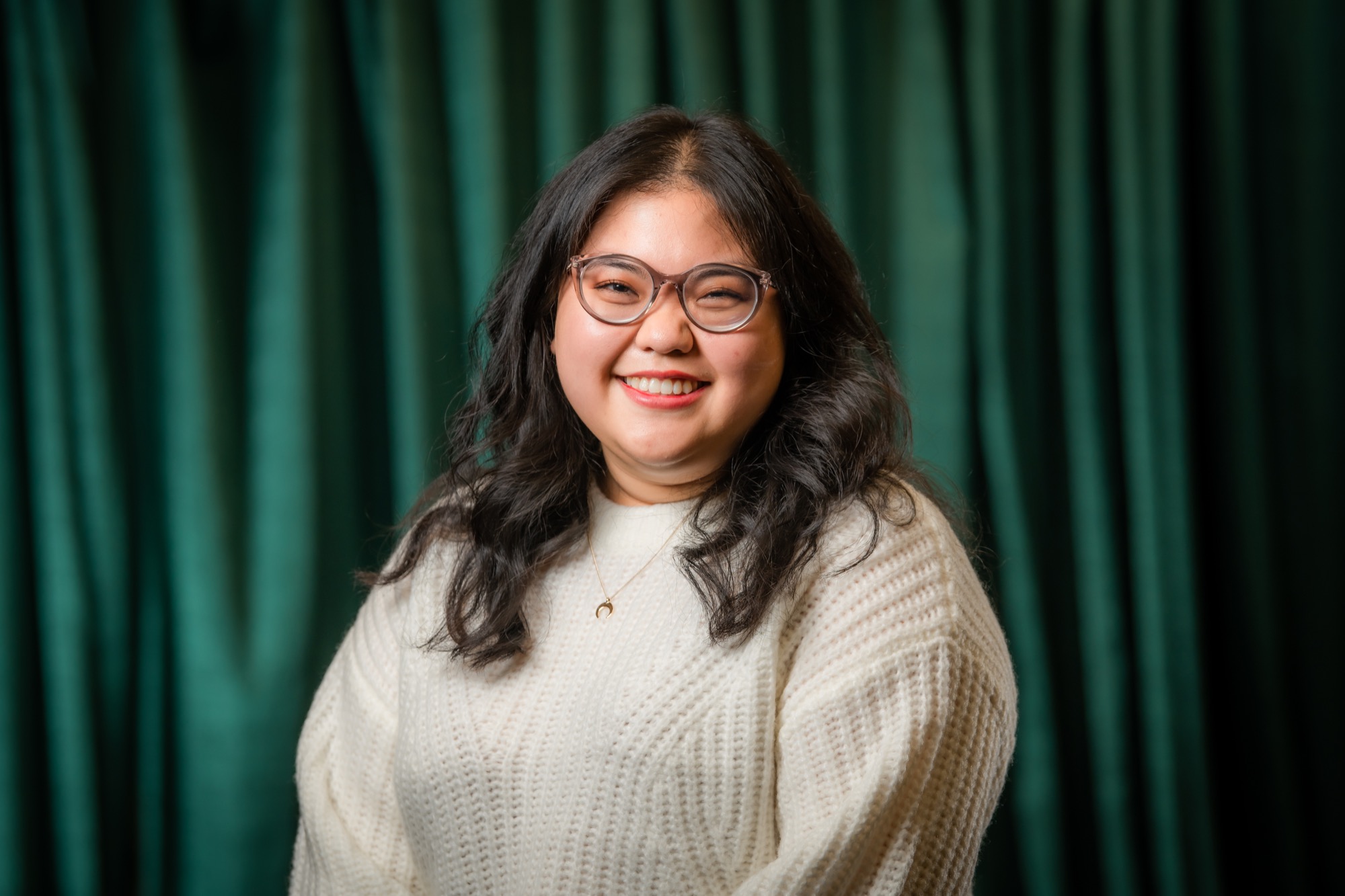Celebrating Native American and Alaska Native Heritage Month at UAA
by Catalina Myers |

November is National Native American and Alaska Native Heritage Month. All month long, UAA celebrates the rich and diverse heritage of Alaska Native and Native American people through events both online and in person.
“It’s really important to learn about the people that were here first and that we are, and still are, stewards of the land,” said Michele Yatchmeneff, executive director of Alaska Native education and outreach. “It's also important to focus on groups of people who are typically under-represented in all of their histories, from the time they're a little kid to adulthood. Often underrepresented people are sidebars of history, meaning you just end up hearing about little things. To me, that's not fulfilling what’s needed to understand our history.”
Yatchmeneff, who is of Unangax̂ descent, said that despite the uncomfortable reality of our country's long and abhorrent treatment of Indigenous people, it is essential to include all the facts so our nation and state can grow, heal and learn from our past.
“When we talk about some of the things that happened, I think people believe that we've gotten past it, and that's not the case. Our people still experience the trauma that has been handed down through our grandparents and our parents,” Yatchmeneff said. “It's not in the past — it happened in the past — but it still affects us today.”
For Yatchmeneff, this sharing includes her own people’s history, including the enslavement of Alaska Natives during the Russian fur trade. From the late 1700s to mid-1800s, Russian fur traders hunted seals for their thick fur coats in the Pacific Northwest up into Alaska’s Inside Passage. Russian merchants exploited Indigenous hunters and their communities, forcing them to harvest fur pelts to appease the demand of the European and Chinese aristocracy.
“I actually have a Russian last name because of slavery and the Russians coming in and taking our people to be hunters for them to get seal fur,” Yatchmeneff said. “This shouldn’t just be my history, but history for everyone to learn about and understand.”
She said it is challenging but necessary to have open dialogues when confronting uncomfortable facts in history, which is why institutions like UAA are crucial in creating a bridge so that not only students, faculty and staff can learn and grow, but communities as well.
“It’s important that faculty, students and staff hear from our students on what it’s like to be Alaska Native on our campus,” she said. “Holding events not only helps us celebrate and share but also process some of the histories that have happened. These conversations remind us that we all have a part to play if we want to try and move forward.”
Jennifer Booz, chief diversity officer, reiterated Yatchmeneff’s statements and said that one of the most significant ways to start a dialogue is through sharing and storytelling.
“The way that we change people’s perceptions by changing people’s hearts and minds is by storytelling — sharing our stories and our humanity together — and listening to people’s experiences,” said Booz. “We all need to celebrate our diverse backgrounds; we need to raise our education levels and awareness of the situation of all the peoples in our organization and our state. We've made that commitment, and this is one of the ways that we follow through with that.”
Yatchmeneff said that she is happy that UAA has committed to diversity, equity and inclusion for all historically marginalized groups. The university is raising its efforts to improve the educational experience of Alaska Native students, faculty and staff on campus. Part of that continued effort includes Yatchmeneff’s appointment as executive director of Alaska Native education and outreach at UAA. Additionally, her recent submission with the UAA Action Team of the Alaska Native Success Initiative to the University of Alaska system is a strategic plan to increase recruitment, retention and sense of belonging for Alaska Native students, faculty and staff at UAA.
“It’s important to create space to have dialogue,” said Yatchmeneff. “Holding activities or events where you can talk and celebrate. Opening up the conversation, so it’s not just one way, where it’s more of a dialogue. It takes all of us to get there, not just the Alaska Native or Indigenous people — it’s really about all of us.”
 "Celebrating Native American and Alaska Native Heritage Month at UAA" is licensed under a Creative Commons Attribution-NonCommercial 4.0 International License.
"Celebrating Native American and Alaska Native Heritage Month at UAA" is licensed under a Creative Commons Attribution-NonCommercial 4.0 International License.













